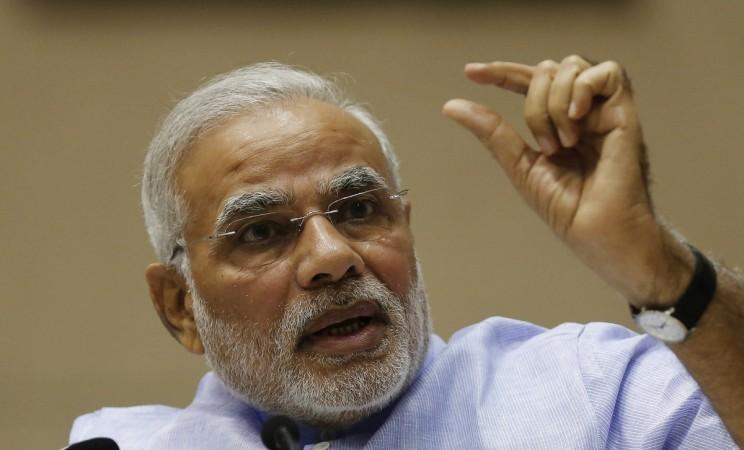
Prime Minister Narendra Modi kicked off his Japan visit with a pact to turn his constituency Varanasi into a 'smart city' just like Kyoto, Japan's former capital for more than 1,000 years.
Modi and his Japanese counterpart Shinzo Abe oversaw a memorandun of understanding to mark the launch of the Smart heritage city program between the two nations to develop Modi's pet 100 smart cities vision.
The MoU was signed by the Indian Ambassador to Japan Deepa Wadhwa and Mayor of Kyoto Daisaku Kadukowa.
Both Kyoto and Varanasi are the most oldest cities with a rich heritage and the MoU will work towards modernisation while conserving the heritage.
Modi left for Japan at 6 am on Saturday, and visited Kyoto, probably to pick up ideas for his '100 smart cities' plan. In a special gesture, and in another indication of their fondness, Abe received Modi.
The two leaders are seen as similar political figures in their respective national fronts, with both known for their right-wing nationalism, and both popular for their charismatic leadership.
More importantly, both are focused on economic progress, and while Abe took charge in 2012 when Japan's economy was struggling, Modi had a similar story to tell as India's growth was below five percent for two years.
The Modi-Abe bonhomie has been evident on the social media as well, with Abe 'following' Modi on Twitter. The Indian PM is one of the only three people, Abe follows on the microblogging site.
In fact, Modi's enthusiasm for his Japan trip, which he had to postpone because of the Budget Session, was on full display when he tweeted in Japanese, and expressed his excitement to meet Abe.
"Am particularly excited to meet PM @AbeShinzo . I deeply respect his leadership & enjoy a warm relationship with him from previous meetings," he tweeted.
Abe has also taken to Twitter awaiting Modi's arrival in Kyoto. "India has a special place in my heart. I am eagerly waiting for your arrival in Kyoto this weekend," Abe tweeted.
But maybe what works best for the two nations can be derived from the old adage 'an enemy's enemy is a friend', in this case, the enemy being China.
Both nations have been cautiously watching the Chinese giant emerge to superpower status in the continent, and while India has been having border issues with China, Japan has issues in the East China Sea.
But Modi's five-day trip promises to be more than just a session of bonding over tea and similarities.
Modi has a clearly-defined agenda for Japan: boosting trade, increasing investments in infrastructure, most likely for the Japanese-inspired 'bullet' trains, and importantly, a civil nuclear deal.
It is no wonder then that Modi has a fat delegation of India's top businessmen, including Reliance's Mukesh Ambani, Wipro's Azim Premji and Gautam Adani of the Adani Group, for the visit to encourage business and investments.
India is also looking for Japanese investment in its $ 85 billion market, though Japan is first keen on nuclearly-sensitive guarantees. A civil nuclear deal would facilitate Japanese nuclear technology firms to invest in India's nuclear power sector, which could boost power producing capabilities of nuclear plants, which at present makes for only two percent of India's total power capacity, Reuters reported.
The two leaders are also expected to strive for greater cooperation in defence with a focus on jointly producing rare earth minerals and metals that can be pumped into defence technology.
"We will discuss how to boost our defence and security cooperation, including in defence technology, equipment and industry, in line with the evolving domestic policies of the two countries," Modi said on Friday on the eve of his Japan visit, the Press Trust of India reported.
Over the next five days, Modi is expected to talk his heart out with his Japanese counterpart over issues close to both of them - development and growth.
"We will explore how Japan can associate itself productively with my vision of inclusive development in India, including the transformation of India's manufacturing, infrastructure sectors, energy and social sectors," Modi said before his departure.

















